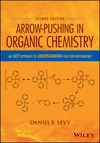"This industry has bled workers for three years, and that trend is likely to continue. The largest companies in the sector, such as Pfizer and Merck, have a number of blockbuster drugs that have lost their patent protection in the last decade. They have other pharmaceuticals that will lose that protection in the next decade. Sales of most of these drugs will move to generic companies that will sell them for far less, and erode critical revenue sources for the huge pharma firms. Most companies in the industry admit that they cannot replace the drugs that go off patent fast enough to keep their revenue high. The other reason employment in the sector will stay down and may drop further is that big drug companies are merging to save costs, and most of those costs are people. Pfizer has cut 30,000 people since the start of the recession. Merck has cut 25,000, and these companies and their peers expect that they will have to bring down costs even more."
While there is first amendment protection regarding freedom of speech and press, such abbreviated analyses of the present situation provide a far gloomier picture than what can be obtained by applying just a little rational thought. After all, among all of my colleagues and connections, no one is suggesting that the pharmaceutical industry will collapse altogether. Furthermore, there remains considerable need for the discovery of new and better therapeutics addressing indications for which there is an unmet medical need. As long as there is a need, there will be a market.
In looking at the above analysis of the pharmaceutical industry, the author is correct regarding the downsizing trend affecting this sector. Furthermore, with major products subject to patent expiration, this trend is likely to continue - at least in the short term. However, a greater understanding of the industry should provide hope. With products losing patent protection and becoming generic, one of the first casualties is sales and marketing. Employment in these areas is dependant upon two areas - currently marketed drugs and drugs soon-to-be marketed. With research pipelines being downsized to focus on development, the development pipeline has a limited lifetime. This trend would lead to the conclusion that employment in drug development may suffer. However, without research, there will be no new products to develop or market.
While research has been a primary casualty over the past 3-5 years, many experts (professionals and recruiters) are beginning to see a change in the market. This should bring some hope to those preparing to enter the workforce. To those graduating with BS/MS degrees, jobs have always been more abundant. To those completing PhD work, a little more time may be necessary before reasonable opportunities present themselves. In today's economy, pursuit of postdoctoral research activities may provide the necessary time and additional experience necessary to enter the workforce from the most competitive perspective.
The Pharma Industry Casualties - WHAT IS THERE TO DO?
The above discussion, while providing hope to those entering the workforce, does not really address the problem faced by the thousands of scientists who have lost their jobs due to downsizing, outsourcing and company closures. To this sector, I refer to the many previous posts I have published regarding maintaining up-to-date and diverse skill sets. There is work out there and one must be creative in order to identify the appropriate opportunities. Do not be hesitant to try your hand at consulting or applying your skills to related industries. Such industries include:
- agrochemical
- food
- textiles
- polymers
- biofuels
- medical devices
- patent law
- contract research organizations




